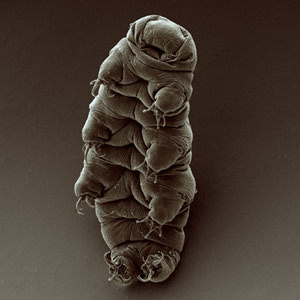Is There Really Life In Space?

Where did we come from? Why are we here? What is the meaning of life? Well, we don’t know. But what we do know is that Russian spacemen have found some form of life in outer space, and that’s pretty big news!
The Big News That Could Change Everything
Solovjev is quoted by the ITAR-TASS news agency as saying: “Results of the experiment are absolutely unique. We have found traces of sea plankton and microscopic particles on the illuminator surface.”
While it’s not entirely shocking to find microscopic life attached to the ISS, the Mirror points out that it is bizarre to find sea plankton that is not native to Baikanour, Kazakhstan.
The Mirror quotes Solovjev as theorizing that since “this is not typical for Baikonur…. It means that there are some uplifting air currents which reach the station and settle on its surface.”
So, the Earth is literally bleeding life into space? Cool.
Where Did It Come From?
This will have huge implications if and when scientists discover life on other bodies within the solar system. Have microbes from Earth floated to Mars?
While not exactly alien life forms, experts are having trouble explaining how the plankton ended up on the station and survived — possibly even grew and multiplied — 205 miles above Earth’s surface.

This is less far-fetched than it seems. In 2012, Motherboard aired a documentary short about tardigrades — “minuscule eight-legged creatures that can withstand extreme conditions, including the vacuum of space.”
Touted as the “first animal to survive in space,” this hardy microorganism boasts limbs, “a mouth, a digestive tract … muscles” and a nervous system,” according to the film.
Its ability to endure such harsh conditions has led scientists to ponder whether it did, in fact, originate in space.
If tardigrades, sea plankton and other tiny organisms can survive unsheltered in the vast expanses of space, who’s to say their relatives — and relatives’ descendants — never populated or evolved on other worlds the same way life on Earth came about.
Scientists have much to learn about the universe, but such findings mark exciting developments in the ongoing search for extra-terrestrial life.












